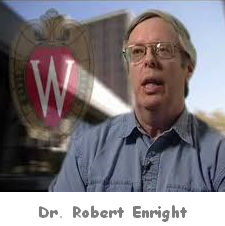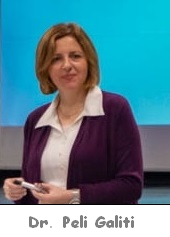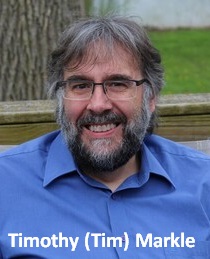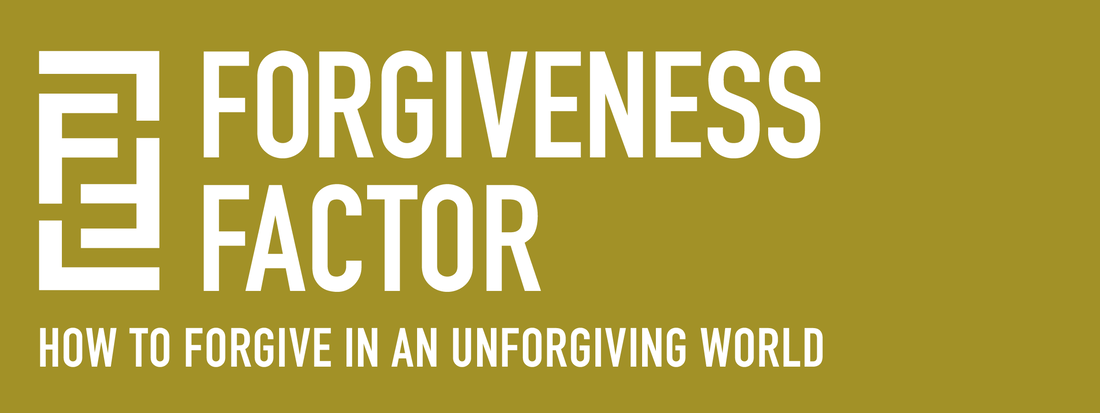Tagged: “forgiveness therapy”
I know that forgiving is important in both Judaism and Christianity. Is forgiveness mentioned in other faiths or worldviews such as Islam or Buddhism?
There is a book in the Koran called Joseph, which is based on the story of Joseph forgiving his half-brothers in Genesis within the Hebrew scriptures. Islam, Judaism, Christianity, Buddhism, and Hinduism have favorable views of forgiving. My book, Forgiveness Therapy, discusses these different viewpoints. The different world religions do not talk negatively about forgiveness. Buddhism does not have a word for forgiveness, but some of the stories in Buddhism show forgiveness. Again, I discuss this in the book, Forgiveness Therapy.
Free Forgiveness Education Webinar on Feb. 4 Featuring Dr. Robert Enright and Dr. Peli Galiti
FORGIVENESS:
PRACTICAL APPLICATIONS OF A TIMELESS VIRTUE
Live Internet Event
Thursday, February 4, 2021
7:00 p.m. EET (Eastern European Time)
MEETING TIME CONVERSIONS
U.S. – EST – Noon
U.S. – CST – 11:00 a.m.
U.S. – MST – 10:00 a.m.
U.S. – PST – 9:00 a.m.
GMT – 5:00 p.m.
REGISTRATION REQUIRED NO LATER THAN TUESDAY, FEBRUARY 2, 2021
The program for this one-of-a-kind free webinar includes presentations by:
- Robert Enright, Professor of Educational Psychology at the University of Wisconsin-Madison and founder of the International Forgiveness Institute (IFI) – “The healing value of forgiveness from the Aristotelian philosophical perspective.”
- Peli Galiti, Researcher in the Department of Educational Psychology at the University of Wisconsin-Madison and Director of the IFI’s Greek Forgiveness Education Program – “The Way to Forgiveness: From Theory to Practice.”
- Konstantinos Kornarakis, Professor of Christian Ethics – Bioethics in the Department of Theology of the Theological School of the National and Kapodistrian University of Athens – “Functional and dysfunctional aspects of forgiveness in texts of the ascetic Christian literature.”
- Konstantinos Bikos, Professor of School Pedagogy and New Technologies in the Department of Philosophy and Pedagogy, the Aristotle University of Thessaloniki – “Socio-emotional and moral development of the Greek student: the contribution of education to forgiveness.”
The webinar has been organized by Dr. Peli Galiti, Ph.D., M.Ed., and her associates at the University of Athens (where she was previously a lecturer in the University’s School of Education) and the Aristotle University of Thessaloniki (A.U.Th.). For the past eight years, Dr. Galiti has been conducting Forgiveness Education training workshops for Greek teachers and for the past five years that training has been in collaboration with A.U.Th. During those eight years she has trained more than 600 teachers to use the Forgiveness Education Program which is now being taught to more than 6,000 Greek students.
The author of two books, Dr. Galiti has received funding for her work in Greece from the prestigious Stavros Niarchos Foundation, established by Stavros Spyros Niarchos, an Athens native who assembled and operated the largest shipping fleet in the world before his death in 1996. A descriptive video (4 min. 11 sec.) of the Greek Forgiveness Program is available at this YouTube link or you can visit the Greek Forgiveness Education website.
The International Forgiveness Institute’s widely-acclaimed Forgiveness Education Program was developed by Dr. Enright along with collaborating curriculum experts and experienced teachers. Using children’s story books (many by Dr. Seuss) and Social Emotional Learning (SEL) techniques, the Program teaches students about the five moral qualities most important to forgiving another person–inherent worth, moral love, kindness, respect and generosity. The Program is now being used in more than 30 countries around the world.
Additional Webinar Information: 1) Dr. Enright’s opening presentation will be delivered in English while the other three presentations will be in Greek with no English translation or subtitles; 2) The event will take place online on the ZOOM platform for free; 3) Registration must be completed by Tuesday, Feb. 2; and, 4) The link to the meeting will be sent to registered participants by e-mail on the eve of the event; and, 5) More than 700 people have already registered for the webinar.
Registration Form Translations:
1. Last name:
2. First name:
3. Email address:
4. Questions(s) you would like to ask the speakers about forgiveness (optional):
5. Which speaker(s) should answer your question (optional):
6. I accept the Privacy Policy:
7. I would like to receive more information about similar events (I Agree/Disagree):
You favor forgiveness education programs in world conflict zones. Yet, haven’t these conflicts gone on and on for centuries in some places? If so, why bother with forgiveness education since the conflicts likely will not end even in these young children’s lifetimes?
You are correct that some people live with injustices that are not likely to end in their lifetime. Even if forgiveness does not completely get rid of all injustices, that forgiveness will heal individuals, families, and communities from the damaging effects of the injustice (deep resentment, hatred, and the resulting anxiety, depression, and hopelessness that too often accompany unsolved injustice). A quest for justice is good and important. Yet, the quest for justice alone in these circumstances can lead to frustration, anger, and the displacement of that anger onto one’s own children and community members, leading to serious psychological compromise. Forgiveness can reverse and prevent these negative effects.
Podcast Series Focuses on How to Forgive
Tim Markle, a contributing writer and speaker for the International Forgiveness Institute (IFI), has teamed up with Stoughton Health to create a series of informational podcasts on the basics of forgiveness.
Markle is a multi-talented and versatile professional who says his two major aspirations in life are helping individuals with developmental disabilities and educating people about the benefits of forgiveness. The podcasts are part of the hospital’s Stoughton Health Talk series hosted by Melanie Cole. The ever-expanding program lineup featuring Markle includes:
- Forgiving Yourself ( 10 min. 42 sec.) – “You’d be surprised at the number of people who come to my course on forgiveness and realize that the person that they have the most resentment against is themselves.” Markle says. “This is something so many people are struggling with.”
- Swimming in Unforgiveness (17 min. 58 sec.) – Markle discusses resentment, anger, and forgiveness, and how the world encourages us to deal with it as opposed to how we should deal with it.
- Preparing to Forgive (9 min. 20 sec.) – “One of the core parts of forgiving is that there has been a hurt, somebody has violated our concept of right or wrong. They have hurt us. There is an actual injury that has been done” according to Markle. “One of the steps in forgiving is admitting that and acknowledging it. And then, looking at how has that hurt changed my life?”
- Doing the Work of Forgiveness (10 min. 54 sec.) – “How do you actually go about forgiving someone?” Markle asks. “Using Dr. Enright’s forgiveness model, we talk about the path you can take and actions you make to really forgive.”
- The Art of Forgiveness (11 min. 15 sec.) Research has shown that by forgiving someone who has deeply hurt you, you gain positive health benefits by letting go of resentment and the urge to seek revenge. In this podcast, Markle describes how forgiveness creates a higher quality of life, a healthier body, and a more positive attitude.
The Stoughton Health Talk Podcast series reflects the growing popularity of podcasts. According to Edison Research and Triton Digital, more than 104 million Americans listen to podcasts on at least a monthly basis. Stoughton Health is one of more than 100 leading hospitals and health systems using the DoctorPodcasting production system. The facility is located about 20 miles east of Madison, WI.
For the past 11 years, Markle has been an Outreach Specialist at the University of Wisconsin-Madison Waisman Center. His current roles there include: 1) Director of the Southern Regional Center for Children and Youth with Special Health Care Needs; 2) Family Discipline Coordinator for the WIsconsin Maternal and Child Health Leadership Education in Neurodevelopmental and Related Disabilities–the WI LEND Program; and, 3) Senior Outreach Specialist with the Youth Health Transition Initiative and Genetic Systems Integration Hub.
In those various capacities, Markle works to improve the lives of children and adults with developmental disabilities and neurodegenerative diseases, some of life’s most challenging conditions. He also develops curriculum for a variety of audiences, provides training for both children and adults, and is a prolific speaker.
Markle has a Masters in Counseling (MC) from John Carroll University (a Jesuit Catholic University in Cleveland, OH) and a Master of Arts in Christian Studies (MACS) from Trinity Evangelical Divinity School north of Chicago. He also studied at Bowling Green State University (Bowling Green, OH), where he earned a Bachelor of Arts in Psychology with a minor in Philosophy.
As the capstone project for his MACS degree, Markle developed a six-week course that focused on how to forgive and why forgiveness is indispensable for dealing with anger, depression, anxiety and trauma. The course is based on the ground-breaking work of Dr. Robert Enright, co-founder of the IFI. Stoughton Health, along with two local churches, has thus far hosted five sessions of the course. Markle is also the founder of a forgiveness education organization called Forgiveness Factor.
Learn more:
- Access all of Stoughton Health’s 68 podcasts covering a variety of health and wellness topics.
- Read Tim Markle’s autobiography.
- Contact Markle through his Contact Page.
2020: A Year We Will Always Remember
Do you remember 2019, the year before last year? It was a year plagued by worldwide unrest, hurricanes, and societal conflicts. When it mercifully sputtered to its end, people sang and drank and danced happily on its grave, assured that 2020 surely would be a much better year.
For a few months, it was. But then, thanks primarily to what was first labeled a “miniscule coronavirus” discovered in a far-away land, 2020 turned out to be much worse for many millions of people around the world. It was one of the most challenging years in modern history—a year to forget, but one we will always remember.
Yet, as a forgiveness researcher and co-founder of the International Forgiveness Institute (IFI), I am proud to report that despite its many challenges, 2020 turned out to be our most productive year ever since I began studying forgiveness three decades ago.
HERE ARE JUST A FEW OF OUR NOTABLE ACCOMPLISHMENTS FOR 2020:
1) We completed and had published 11 significant scientific research projects. I was able to team up with a different group of uniquely-qualified specialists for each of those projects. Covering a wide range of cultural diversity, and encompassing studies in seven countries with both adult and child participants, those studies included:
- Development and implementation of a totally new forgiveness tool—The Enright Group Forgiveness Inventory–that has important implications for world peace. As part of that project, we tested the tool in China, Taiwan, Slovenia, and the U.S. It will soon be available on the IFI website at no cost to researchers.
- Completion of three “peace education initiatives” in China, Iran, and the U.S. that are designed to inspire and engage educators, students, and community leaders. I continue projects like these because I genuinely believe that forgiveness is the missing piece to the peace puzzle and that the IFI must continue its mission of “Healing Hearts, Building Peace.”
- Seven other projects documenting how Forgiveness Therapy can positively impact the homeless and those in prison, help prevent bullying (Spain), assist female acid attack victims in Pakistan (a significant social issue there), and others.
+ See all the 2020 IFI Research Projects +
2) As recognition and adoption of our Forgiveness Therapy interventions grows, I was able to develop and deliver more than a dozen targeted forgiveness presentations in the U.S. as well as in Scotland (Edinburgh), Northern Ireland (Belfast), and Slovakia (Bratislava) during 2020. Audiences included cancer treatment specialists, pediatricians, oncologists, and other medical specialists; prison maximum security staff and inmates; school administrators and teachers; and university faculty, research associates, and students.
+ See the full list of 2020 Forgiveness Presentations +
3) Responding to frequent requests from national and international news reporters, I was able to complete media interviews, podcasts and video productions in Spain, Germany, Italy, Israel, Canada and a variety of U.S. locations. One of those podcasts—hosted and broadcast by Dr. Alexandra Miller, a popular family relations psychologist—was downloaded by individuals in 225 US cities and 22 foreign countries in just the first three weeks after it was recorded.
+ See the entire list of 2020 Media Engagements +
4) In addition to all that activity, I managed to continue our promotion of the immeasurable benefits of forgiveness and Forgiveness Therapy by:
- Authoring 12 new forgiveness-related blogs for Psychology Today;
- Originating 12 additional blogs for “Our Forgiveness Blog” on the IFI website; and,
- Providing written responses on our website for 208 “Ask Dr. Forgiveness” questions.
Yes, 2020 was a ground-breaking, record-setting year for the science of forgiveness, for the International Forgiveness Institute and for me personally. At the same time, the pandemic has helped us realize that life is too short to be unhappy. Living in the moment matters. Being there for the people you love matters. And it gives us the chance to add to our Unfolding Love Story.
There is one sure way to get rid of your unhappiness: Make this year the one when you learn to forgive. If you live a forgiving life, I guarantee it will be a happier and healthier life.
Robert







